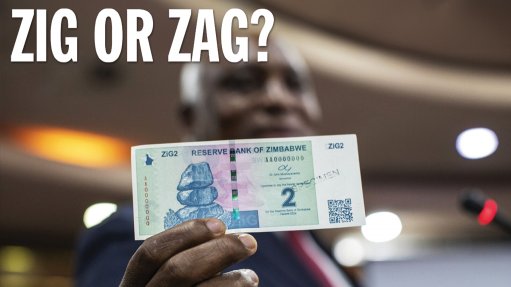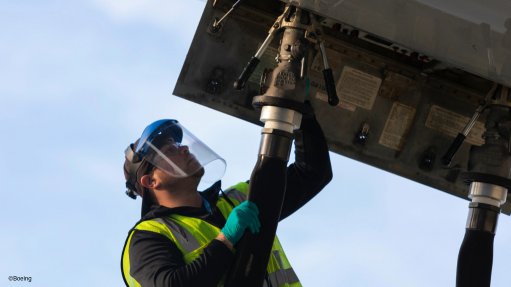Liberia regains status as iron-ore exporter after conflict
Areturn to political stability and prudent macroeconomic management have enabled Liberia to resume its status as an iron-ore exporter by attracting foreign direct investment, states Good Governance Africa CEO John Endres.
He cites steel and mining company ArcelorMittal’s announcement in 2013 that it had invested more than $1-billion in developing its Liberian iron-ore operations to date, which includes the company’s mining plant, near the port city of Buchanan.
“Foreign investment plays a key role in rebuilding Liberia’s production capability, including the reconstruction of infrastructure destroyed during the civil war,” Endres notes.
He says Liberia has significant deposits of iron-ore, but that they are not large enough to rank among the world’s top sources, adding that exploration is not complete and further deposits may be discovered.
“The challenge for the Liberian government will be to nurture good governance. It will have to promote transparency and democratic accountability, the rule of law and inclusive economic growth, as well as human, civil and property rights. If the government achieves these objectives, stability will prevail. Otherwise, there is a risk that instability will return,” Endres cautions.
Fourteen years of civil war destroyed Liberia’s infrastructure and significantly eroded the human capital base. Therefore, government is severely constrained in its ability to provide basic services for the population, owing to its lack of human and financial resources, European development policies developer EuropeAid reports.
“Given these constraints, it will take time for the wealth generated from iron-ore to make a difference in people’s lives, despite government’s ambitious and laudable development programme,” Endres points out.
He adds that despite improvement Liberia still ranks very low on the United Nations Development Programme Human Development Index (HDI). The country ranked 174th out of 186 countries for the 2012 HDI – an improvement of eight places.
Liberia was also ranked 75th out of 176 countries in the Transparency International 2012 Corruption Perception Index, with a score of 41 out of a maximum of 100 points. “Considering where the country has come from, that is not a bad performance at all. Liberian President Ellen Johnson Sirleaf’s corruption-fighting measures are clearly having a positive effect,” Endres applauds.
These measures comprise ensuring the independence of the General Auditing Commission, supporting the establishment of the Liberia Anti-Corruption Commission, promoting transparent financial management, public procurement and budget processes and assuring Liberia’s compliance with the Extractive Industries Transparency Initiative (EITI) through the Liberian EITI law, he explains.
However, a 2012 report by the U4 Anti-Corruption Resource Centre states: “Despite these positive developments, corruption remains endemic and permeates through most sectors of society.”
Liberia History
“Before the two civil wars, metals – primarily iron-ore and gold – played an enormous role in Liberia’s economy,” Endres notes.
Between 1951 and 1989, when the first civil war started, the mineral industry made a considerable contribution to Liberia’s eco- nomy. By the late 1970s and early 1980s, it contributed up to 65% of total export earnings, 50% of government revenues and 30% of gross domestic product (GDP). During this time, Liberia was Africa’s leading exporter of iron-ore and, in some years, the third-biggest exporter in the world, he adds.
However, during the civil war, the Liberian economy suffered a calamitous collapse. According to World Bank figures, the country’s GDP, (in constant $2 000), dropped from a high of $1.368-billion in 1980 to $114-million in 1995.
By 2011, Liberia’s GDP had still not regained the record level it achieved 31 years previously, reaching only $1.152-billion. “The collapse, or abandonment, of metals mining played a large role in the poor performance of the economy during the civil war,” Endres points out.
Liberia’s economy grew by an average of 4.9% a year in the 1960s and 1.8% in the 1970s. The country was politically stable and was actively involved in international affairs as a cofounder of the United Nations and the African Union, while also promoting African independence from European colonial powers and consistently criticising South Africa’s apartheid government.
But between former Liberian President Samuel Doe’s coup of 1980 and the end of the second civil war in 2003, the economy shrank by an average of 7.9% a year. During this time, infrastructure was destroyed and human capital lost. The principal causes of the coup and the civil wars were ethnic tension, economic stresses and feeble institutions, Endres explains.
He notes that the rebuilding of Liberia has gathered momentum since 2005, when Sirleaf, a Harvard-trained economist and former Minister of Finance, was elected as the first female President in Africa, in elections widely regarded as the most free and fair in Liberia’s history.
“Liberia’s economy grew by an average of 6.8% from 2005 to 2011, the latest year for which World Bank data is available. The country has almost completely eliminated its foreign debt,” says Endres.
He notes that Sirleaf was re-elected in 2011. “She has battled corruption and had some successes, but acknowledged in 2012 that corruption was still ‘systemic and endemic’ in Liberia. Ironically, Sirleaf, herself, has come under fire for nepotism, having appointed three of her sons in high-ranking government posts,” Endres concludes.
Comments
Press Office
Announcements
What's On
Subscribe to improve your user experience...
Option 1 (equivalent of R125 a month):
Receive a weekly copy of Creamer Media's Engineering News & Mining Weekly magazine
(print copy for those in South Africa and e-magazine for those outside of South Africa)
Receive daily email newsletters
Access to full search results
Access archive of magazine back copies
Access to Projects in Progress
Access to ONE Research Report of your choice in PDF format
Option 2 (equivalent of R375 a month):
All benefits from Option 1
PLUS
Access to Creamer Media's Research Channel Africa for ALL Research Reports, in PDF format, on various industrial and mining sectors
including Electricity; Water; Energy Transition; Hydrogen; Roads, Rail and Ports; Coal; Gold; Platinum; Battery Metals; etc.
Already a subscriber?
Forgotten your password?
Receive weekly copy of Creamer Media's Engineering News & Mining Weekly magazine (print copy for those in South Africa and e-magazine for those outside of South Africa)
➕
Recieve daily email newsletters
➕
Access to full search results
➕
Access archive of magazine back copies
➕
Access to Projects in Progress
➕
Access to ONE Research Report of your choice in PDF format
RESEARCH CHANNEL AFRICA
R4500 (equivalent of R375 a month)
SUBSCRIBEAll benefits from Option 1
➕
Access to Creamer Media's Research Channel Africa for ALL Research Reports on various industrial and mining sectors, in PDF format, including on:
Electricity
➕
Water
➕
Energy Transition
➕
Hydrogen
➕
Roads, Rail and Ports
➕
Coal
➕
Gold
➕
Platinum
➕
Battery Metals
➕
etc.
Receive all benefits from Option 1 or Option 2 delivered to numerous people at your company
➕
Multiple User names and Passwords for simultaneous log-ins
➕
Intranet integration access to all in your organisation


















